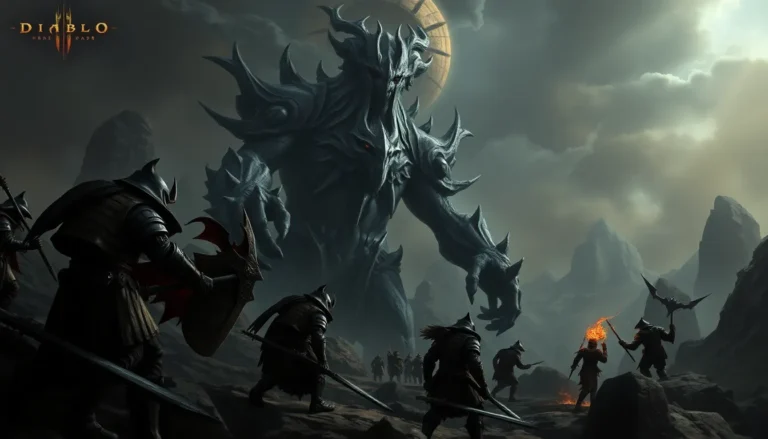Table of Contents
ToggleGamers everywhere know the age-old debate: PlayStation or Xbox? It’s like choosing between pizza and tacos—both are delicious but totally different experiences. Each console boasts its own loyal fanbase, and the rivalry has sparked countless discussions, memes, and even a few friendly fistfights.
As they dive into the world of gaming, players often find themselves torn between the sleek design and exclusive titles of PlayStation and the powerful performance and online features of Xbox. With every new release, the stakes get higher and the competition fiercer. So, which console reigns supreme? Grab your controllers, settle in, and let’s explore the quirks, perks, and ultimate showdowns that make this battle one for the ages.
Overview of Play Station Vs Xbox
PlayStation and Xbox represent two of the most prominent gaming consoles in the market today. Each system offers unique features that cater to various gaming preferences. Gamers often choose based on exclusive titles, online services, or hardware specifications.
PlayStation has gained a reputation for its strong library of exclusive games such as “The Last of Us” and “God of War.” Xbox counters this with titles like “Halo” and “Gears of War,” showcasing its own impressive lineup. Both consoles support high-resolution graphics and immersive gameplay experiences.
Services like PlayStation Plus and Xbox Game Pass enhance the gaming experience by providing access to numerous games. Players value these subscriptions for the opportunity to explore new titles without significant upfront costs. Each platform also offers cloud gaming options, allowing users to play on multiple devices.
Network performance differs between the consoles. PlayStation typically maintains a robust online service, while Xbox is renowned for its flexibility and community features. Fan engagement significantly influences the gaming experience, fostering dedicated communities.
In terms of hardware, both consoles utilize powerful processors and GPUs, yet Xbox emphasizes backward compatibility more than PlayStation. Gamers appreciate the ability to play older titles on newer systems, which can extend the lifecycle of a console.
Each brand’s marketing strategies attract different demographics, with PlayStation often appealing to a broader audience and Xbox focusing on tech enthusiasts. Both console manufacturers have made strides in cross-platform gaming, enabling players to enjoy titles with friends regardless of their platform choice.
Analyzing the strengths and weaknesses of both PlayStation and Xbox showcases the dynamic nature of the gaming industry, and fans remain passionate about their preferred console.
Game Library Comparison
The game libraries for PlayStation and Xbox showcase distinct strengths that attract different types of gamers. Both consoles offer a wide variety of titles catering to diverse interests and preferences.
Exclusive Titles
PlayStation leads with exclusive titles like “The Last of Us Part II,” “Spider-Man,” and “Demon’s Souls.” These games often receive critical acclaim for their storytelling and graphics. Xbox counters with exclusives such as “Halo Infinite” and “Forza Horizon 5.” These franchises boast strong followings and provide impressive multiplayer experiences. Each console’s unique offerings help define its identity, drawing gamers to invest in one platform over the other. Exclusive titles heavily influence the choices of those seeking specific experiences.
Third-Party Support
Third-party support plays a crucial role in the gaming ecosystem. Both PlayStation and Xbox enjoy relationships with major developers like Activision and Electronic Arts. Gamers can access popular franchises such as “Call of Duty” and FIFA on either platform. Differences exist in the timing and availability of certain titles, which might favor one console over the other. Exclusive content or early access deals can significantly impact gamers’ preferences. Overall, third-party support enhances the overall game library, ensuring a wide range of options for players.
Hardware Specifications
Both PlayStation and Xbox showcase advanced hardware capabilities that elevate gaming experiences. Key specifications include performance metrics and storage options, which significantly impact gameplay.
Performance Metrics
PlayStation 5 features a custom AMD Zen 2 CPU with 8 cores clocked at 3.5 GHz and a GPU capable of 10.28 teraflops. Xbox Series X, on the other hand, utilizes a similar AMD architecture, boasting 8 cores running at 3.8 GHz and a GPU at 12 teraflops. High frame rates and 4K resolution are accessible on both consoles, catering to gamers who seek visually stunning experiences. Latency reduction can also enhance responsiveness, improving gameplay for competitive titles. Each console employs ray tracing technology, creating realistic lighting and shadows that enhance immersion.
Storage Options
PlayStation consists of a custom 825 GB SSD that drastically reduces load times. Xbox counters this with a larger 1 TB SSD, offering ample space for game storage. Both systems support expandable storage; PlayStation utilizes M.2 NVMe SSDs, while Xbox offers an expansion card for seamless integration. Game sizes continue to grow, making these storage options essential for gamers with extensive libraries. Managing available space has become necessary for playing multiple titles, ensuring easy access to favorites without delays.
User Experience
User experience plays a vital role in the PlayStation versus Xbox debate. Players prioritize ease of access and engagement when choosing a console.
Interface and Usability
Interface design differs significantly between PlayStation and Xbox. PlayStation’s UI streamlines navigation, emphasizing quick access to games and applications. Unique features, like the Control Center, allow immediate settings adjustments without interruptions. Xbox showcases a tile-based layout that prioritizes customization. Gamers can easily pin frequently used games and apps. Both consoles feature an intuitive setup process, easing the transition for new users. Frequent updates enhance usability on both systems, ensuring contemporary design trends are met.
Online Services
Online services are essential for modern gaming. PlayStation Plus provides monthly free games, exclusive discounts, and cloud storage options. Concurrently, Xbox Game Pass stands out for its subscription model, offering access to a vast library of games for a single monthly fee. Xbox Live Gold enhances the multiplayer experience with reliable server quality and free game offers. Players appreciate that both platforms support cross-platform play, enabling interaction across different consoles. Academic studies indicate that these online services significantly increase player satisfaction and engagement.
Community and Multiplayer
Community involvement and multiplayer interactions play a significant role in the gaming experience for both PlayStation and Xbox users. Each console cultivates a unique environment that fosters player engagement and social connection.
Player Engagement
Gamers on PlayStation engage through active communities around exclusive titles and in-game experiences. The platform boasts strong group functionalities, allowing players to create or join parties seamlessly. Online multiplayer modes enrich gameplay, ensuring friends can easily connect in competitive or cooperative sessions. Xbox emphasizes inclusivity by offering features that enhance communication, such as voice chat and messaging. Gamers can build their own communities based on shared interests and gameplay styles. Both platforms facilitate a rich, interactive atmosphere that extends beyond just gaming.
Social Features
PlayStation emphasizes social engagement with features like friends lists and activity updates. Players can share gameplay moments and achievements, fostering community spirit. Xbox counters with robust integration of social media platforms, allowing for effortless sharing of content. Users can also follow friends’ activities and events, keeping everyone informed. In addition, both platforms host events and tournaments, encouraging participation and competition. These social features cultivate a sense of belonging among players, enhancing their overall gaming experience.
Conclusion
The rivalry between PlayStation and Xbox continues to captivate gamers worldwide. Each console brings unique strengths to the table that cater to different preferences and gaming styles. Whether it’s PlayStation’s rich library of exclusives or Xbox’s commitment to backward compatibility and community features, both platforms offer compelling experiences.
As technology evolves and gaming trends shift, this competition will only intensify. Gamers will remain passionate about their choices while exploring the ever-expanding worlds both consoles provide. Ultimately, the decision comes down to individual preferences and what each player values most in their gaming journey.




